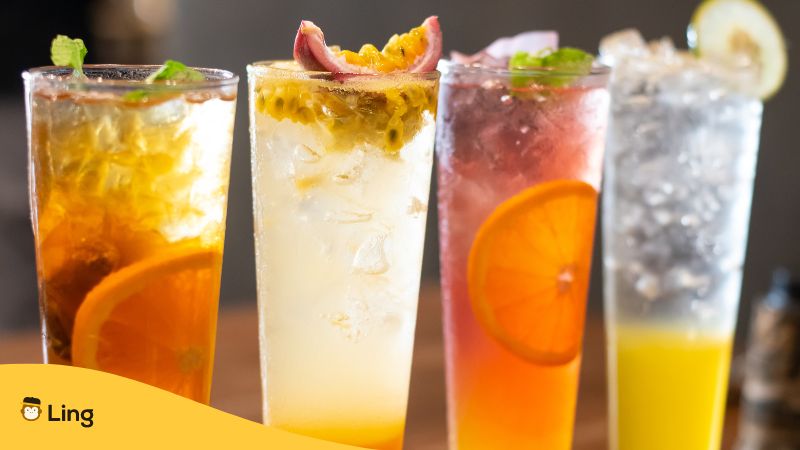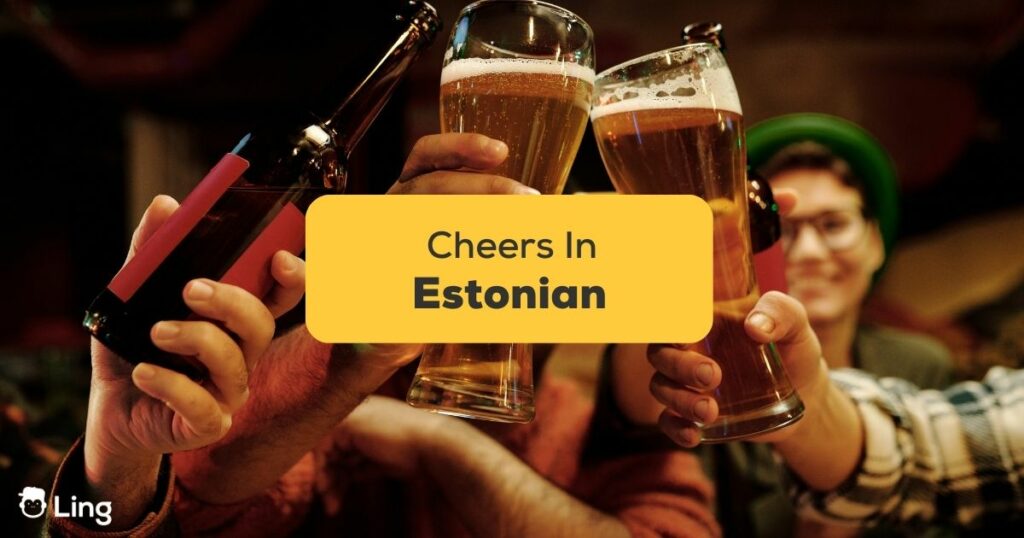Ever found yourself raising a glass in a foreign land, only to draw a blank on how to say ‘cheers’? Well, if you’re planning a jaunt to Estonia or simply love picking up quirky new phrases, then learning how to say cheers in Estonian is a must! Ready to impress the locals and let them hear your seemingly “like-a-native” way of saying terviseks (or to health)? If yes, then keep reading below!
Ever been so captivated by a place that you transform into a low-key stalker? Yeah, that was me in Estonia. I’d landed in Tallinn, bewitched by its medieval towers and cobblestone streets. But as any seasoned traveler knows, to truly understand a place, you need to follow the locals — not in a creepy way, just… you know, in an ‘I-want-to-experience-this-place-like-a-local’ sort of vibe.
So, I did.
From cozy cafes to bustling markets, I discreetly trailed behind, soaking in their daily rituals. But the real revelation came one chilly evening at a rustic tavern. As I nestled into a dimly lit corner, I witnessed a rich tapestry of the Estonian drinking culture unfold before me. Glasses raised high, laughter echoing, and that one word repeatedly toasted: “Terviseks“. It wasn’t just a cheers; it was an embrace of community, tradition, and a heartfelt wish for good health. That night, amidst the clinking of glasses, I realized I wasn’t just a tourist. For once, I felt like I was part of an age-old Estonian ritual, and it felt, well… magical.
And so, if you’re going to ask me for a tip, here’s what I have for you: If you truly want to unravel the heart of Estonia, sidestep those touristy trails and venture into the world of local drinking rituals!
Now, I’m not just talking about downing shots or sipping a pint — though that’s fun too! Estonia’s drink culture is a reflection of its history, traditions, and the warmth of its people. Go ‘cafe crawling’ in the streets of Tallinn, sipping aromatic coffee with pastries, or sit by a local tavern in the countryside, enjoying traditional brews. Whether it’s the conviviality of a beer garden, the coziness of a coffee shop, or the heartiness of a village festival, drinking with the locals offers an intimate glimpse into the Estonian soul.
Ready to get to know the Estonian language a little bit better and attract new friends? If yes, read on the translations I rounded up below!

How To Say Cheers In Estonian
Dive into the heart of Estonian celebrations, and you’ll soon find yourself enveloped in a world of vibrant traditions, joyous laughter, and shared memories. But amongst the rich tapestry of sounds and emotions, there’s one phrase that consistently stands out, capturing the very essence of these cherished moments: “Terviseks!”
Terviseks
Pronunciation: [ter-vi-seks]
This word isn’t just a simple toast; it’s a bridge connecting centuries of Estonian heritage, a nod to the past, and a wish for the future. Derived from “tervis”, which means “health”, every time you raise a glass and toast “Terviseks!”, you’re channeling a rich tradition and wishing well-being and good health upon your companions.
While “Terviseks!” reigns supreme in its popularity, there are other equally evocative expressions that the Estonians use, each painting a vivid picture of the nation’s rich linguistic and cultural tapestry.
Proosit!
Pronunciation: [pro-sit]
Steeped in German roots, “Proosit!” is another common Estonian toast. Given Estonia’s historical ties and geographical proximity to Germany, it’s no surprise that certain linguistic influences have woven their way into the Estonian drinking vernacular. When you say “Proosit!”, you’re echoing a centuries-old European tradition of celebrating good times and great company.
Hõisked!
Pronunciation: [hoi-sked]
This term is the plural form of ‘cheers’ in Estonian. Imagine a room brimming with euphoria, where not just one but multiple glasses are raised, echoing multiple cheers. That’s when “Hõisked!” comes into play. It’s the collective joy of a group, the shared happiness of a moment multiplied.
So, the next time you’re amidst the jubilant sounds of Estonia, be it at a grand festival, a close-knit family gathering, or a simple soirée with friends, let these words flow. “Terviseks!”, “Proosit!”, “Hõisked!” – each has its own charm, its own story. Let them be your guide to the authentic, heartwarming world of Estonian celebrations.

Common Beverages In Estonian Language
From hearty brews that have warmed Estonian souls for centuries to modern concoctions that mirror the nation’s innovative spirit, each drink is a journey through time and tradition. If you’re keen on tasting Estonia in its truest essence, understanding the language of its drinks is a must. Let’s embark on this flavorful expedition by acquainting ourselves with some common beverage translations:
| English | Estonian |
|---|---|
| Water | Vesi |
| Coffee | Kohv |
| Tea | Tee |
| Beer | Õlu |
| Wine | Vein |
| Milk | Piim |
| Juice | Mahl |
| Soda | Gaseeritud jook |
| Whiskey | Viski |
| Vodka | Viin |
Knowing the words is the first step, but being able to weave them into everyday conversations is where the real magic lies! Let’s dive into some basic sentence structures to help you order, discuss, and enjoy Estonian beverages like a pro:
- Ma soovin _____.
Translation: I would like a _____.
Example: Ma soovin kohv. (I would like a coffee.) - Kas teil on _____?
Translation: Do you have _____?
Example: Kas teil on õlu? (Do you have beer?) - ____ on minu lemmik.
Translation: _____ is my favorite.
Example: Vein on minu lemmik. (Wine is my favorite.)
Learn Estonian With Ling
Your adventure into the enchanting world of the Estonian language has only just begun. Remember, every language is a doorway into a new realm of culture, tradition, and personal connections. If this glimpse into Estonian has ignited a spark in you to dive deeper, we’ve got just the recommendation: Ling.
With Ling, not only can you master Estonian, but you’ll also have the keys to unlock 60+ other languages from around the globe. Think of all the worlds waiting to be discovered, all the tales yearning to be told, and all the “Tervisekses” waiting to be toasted!
Ready to embark on your linguistic journey? Download Ling now from the App Store or Play Store to get started!



































































